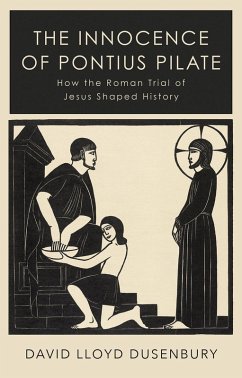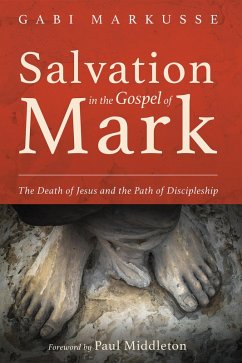The gospels and ancient historians agree: Jesus was sentenced to death by Pontius Pilate, the Roman imperial prefect in Jerusalem. To this day, Christians of all churches confess that Jesus died 'under Pontius Pilate'. But what exactly does that mean?
Within decades of Jesus' death, Christians began suggesting that it was the Judaean authorities who had crucified Jesusa notion later echoed in the Qur'an. In the third century, one philosopher raised the notion that, although Pilate had condemned Jesus, he'd done so justly; this idea survives in one of the main strands of modern New Testament criticism. So what is the truth of the matter? And what is the history of that truth?
David Lloyd Dusenbury reveals Pilate's 'innocence' as not only a neglected theological question, but a recurring theme in the history of European political thought. He argues that Jesus' interrogation by Pilate, and Augustine of Hippo's North African sermon on that trial, led to the concept of secularity and the logic of tolerance emerging in early modern Europe. Without the Roman trial of Jesus, and the arguments over Pilate's innocence, the history of empirefrom the first century to the twenty-firstwould have been radically different.
Within decades of Jesus' death, Christians began suggesting that it was the Judaean authorities who had crucified Jesusa notion later echoed in the Qur'an. In the third century, one philosopher raised the notion that, although Pilate had condemned Jesus, he'd done so justly; this idea survives in one of the main strands of modern New Testament criticism. So what is the truth of the matter? And what is the history of that truth?
David Lloyd Dusenbury reveals Pilate's 'innocence' as not only a neglected theological question, but a recurring theme in the history of European political thought. He argues that Jesus' interrogation by Pilate, and Augustine of Hippo's North African sermon on that trial, led to the concept of secularity and the logic of tolerance emerging in early modern Europe. Without the Roman trial of Jesus, and the arguments over Pilate's innocence, the history of empirefrom the first century to the twenty-firstwould have been radically different.
Dieser Download kann aus rechtlichen Gründen nur mit Rechnungsadresse in A, D ausgeliefert werden.









